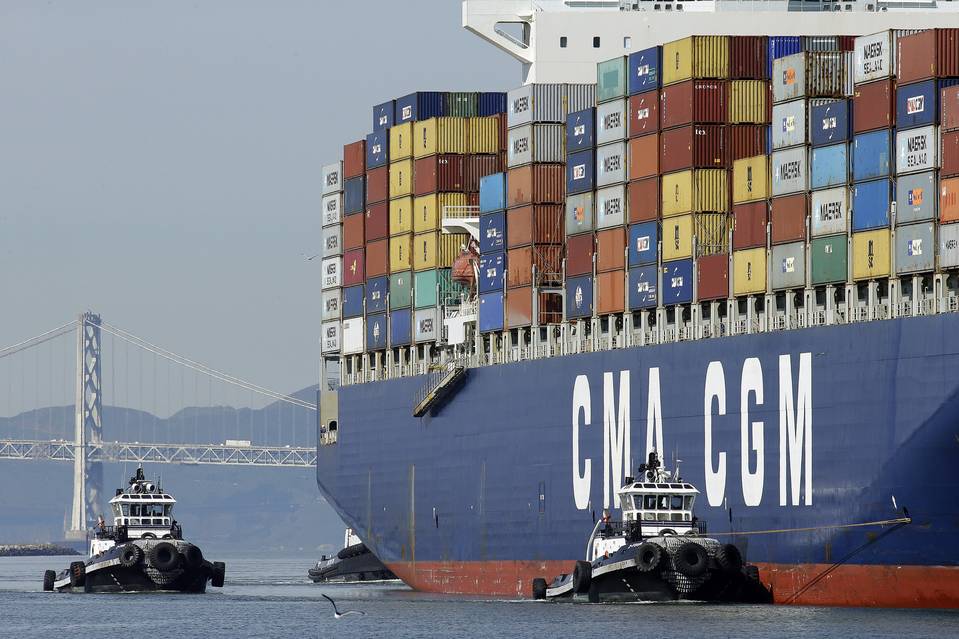- Seaport Traffic Declines By 20.6% on Forex Illiquidity
Following the inability of importers and exporters to get the needed foreign exchange (forex) to transact their businesses, coupled with insecurity in Nigeria’s coastal waters, activities at the nation’s seaports have dropped significantly.
According to the ship traffic statistics drawn from the Nigerian Ports Authority (NPA), 4,025 vessels berthed at the various ports across the country last year, showing a decline of 20.6 per cent compared to 5071 vessels recorded in 2015.
The number of vessels recorded last year represented a year-on-year (y/Y) decline of 20.6 per cent or 1,046 vessels.
Analysts posited that the exclusion of 41 items from access to forex from the official window by the Central Bank of Nigeria (CBN) also contributed to the decline in import activities.
In the same vein, the Nigerian Customs Service (NCS) is also feeling the heat as the data revealed that Nigeria generated N35.6 billion in customs and excise duties in May 2016, compared with N42.1billion recorded in the corresponding period of the previous year.
Similarly, outward cargoes from Delta port dropped by 51 per cent to an estimated 1.9 million in 2016 from 2013. The Delta port exports crude oil primarily and, given the recurrent pipeline vandalism, export volumes have plummeted.
Meanwhile, at Apapa port, outward cargoes surged by 54 per cent over the same period to 1.3 million tonnes last year.
Analysts at FBN Quest said there is an over-reliance on Lagos ports, stressing that the evacuation of cargoes remains a major challenge, with other transportation links surrounding the port in poor condition.
“In an attempt to improve maritime trade as well as reduce the pressure associated with transshipment cargo at Lagos ports, the construction of the Ibom Deep Sea Port (IDSP) located in Akwa Ibom State is underway. Given its proximity to industrial and commercial centers in southern Nigeria, once operations commence, IDSP has the potential of becoming a dominant hub within the region, “said FBN Quest.
Commenting on the development, Executive Vice Chairman/Chief Executive Officer of ENL Consortium Limited, operators of Terminals C and D of the Lagos Port Complex and Chairman of Seaport Terminal Operators Association of Nigeria (STOAN), Vicky Haastrup described the situation as a very challenging period for the maritime industry.
According to her, “As you know, the volume of activities in the ports has reduced and it has been a very drastic reduction. For example, in my company we have a cargo downturn of a least 57 per cent as at two weeks ago. When you compare today with this period two years ago we have a reduction in cargo output of a minimum of 57 per cent which means we are operating 43 per cent capacity. This month is even worse. Now we do only six or seven ships from, for example, 30. That is a huge challenge. The problem has also affected the container operators in the ports. There’s may not be as bad as ours but they are also experiencing a downturn in their operational activities particularly as it relates to cargo troop out.
“Why is it like that? It is because of the inconsistencies in government policies. What we need now is a consistent policy regime to help the economy to grow. This will create confidence in the mind of business owners and importers of cargo. But a situation where you are not sure whether the policy may change or not you cannot do anything reasonable. Policies keep changing; government must look into that area. For example, the policies on the ban of import 42 items. They should also look at the foreign exchange policy.”
She added that the present floating exchange rate system of the CBN is not helping matters stressing that it is not good for the economy.
“Why? Because it is floating so high that it is becoming unaffordable to the ordinary Nigerian. It is a good thing to allow the naira to find its true value but the way it is been done now is making the dollar to skyrocket. Government need to look at these policies in the way that it should not go above certain level. AS we speak one dollar exchanges for N505. That is way too high; can Nigeria as a country survive on that? It makes commodity prices very expensive. People can barely afford to eat three square meals a day. One very important thing that the government should do now is to collapse the gap between official rate and parallel market rate. The margin between both markets is too high,” she said.


 Forex2 weeks ago
Forex2 weeks ago


 Naira2 weeks ago
Naira2 weeks ago
 Naira4 weeks ago
Naira4 weeks ago
 Billionaire Watch1 week ago
Billionaire Watch1 week ago
 Company News4 weeks ago
Company News4 weeks ago




 Naira2 weeks ago
Naira2 weeks ago




 Naira1 week ago
Naira1 week ago




 Naira4 weeks ago
Naira4 weeks ago





















